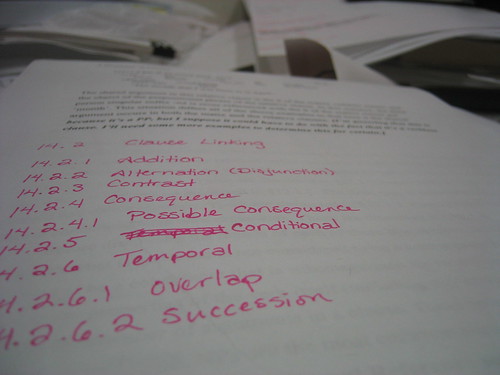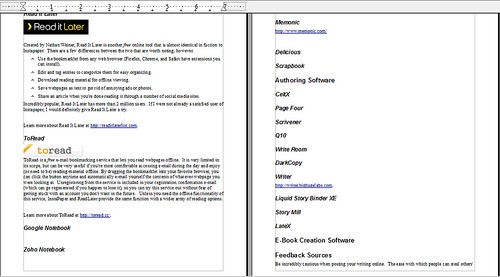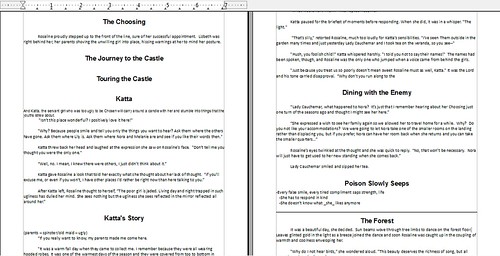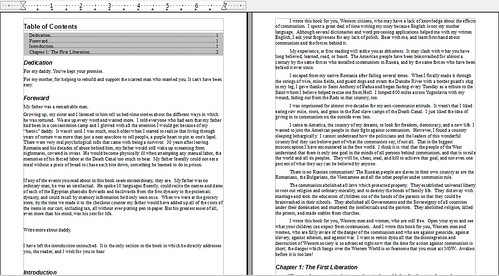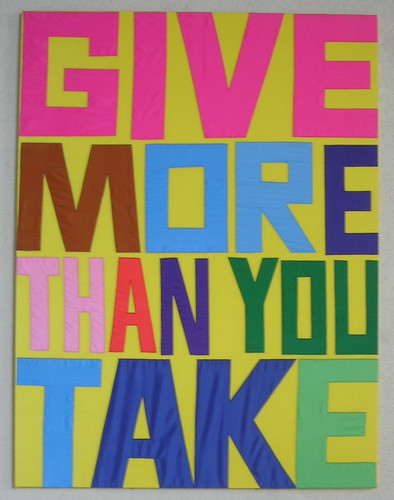
Teaching at-risk high school students for the past year was a learning experience for me. Being faced with difficult circumstances (sometimes outright hostile ones) helped me to grow both as a person and as a writing instructor. While I won’t disclose the particulars of my students and my interactions, I will impart to you one insight about writing of which this past year made me aware:
Your personal character affects your writing.
I know it may be a hard claim to swallow, but allow me to explain how something so abstract can have a very tangible effect on the words you produce on paper. In short, writing is made up of an assortment of anecdotes, analogies, comparisons, and examples. You select their content based on what you know (i.e., your background) and what you value (i.e., your character).
What You Know
People write about what they know and so much of the content that you create is based on your personal background. There’s not much that you can do to control that. Being more aware of what the anecdotes and comparisons you use reveal about your socioeconomic background can empower you, though, to make sure that you
- reveal only as much of your personal history as you are comfortable revealing to your audience and
- make sure to choose examples that come from your audience’s personal experience, not yours.
Let’s look at how a comment on the weather can reveal much about your background. It’s summer time now in Houston and the heat is in full swing. Since Houston is relatively close to the coast, it’s not only unbearably hot in the summer, it’s also humid. If you write
“The humidity level in Houston makes it feel like one giant laundromat,”
you’ve revealed to your reader that you are familiar with what the inside of a washateria feels like. Depending on who the target audience of your paper is, your reader may not have ever set foot inside a laundromat personally and may or may not be coming to assumptions about your income level based on the fact that you
have.
What You Value
While there is nothing you can do to change your background, you CAN change your character. Your “character” is the sum of moral or ethical qualities that make you the person you are. If you haven’t considered how your personal values can seep into your writing, you need to read the following paragraph.
The essays my students turned in to me this past year revealed more than just their writing ability; they revealed their very moral fibres. For example, after Christmas break I asked students to write about what they did over the holiday. One student wrote that she would have gone clubbing with her boyfriend, but she had to stay home and watch her baby. While that in and of itself didn’t reveal much, the sentence she wrote afterwards did: “My baby cramps my style." Another girl wrote about how jealous she felt that her baby received more Christmas presents than she did. When answering an essay prompt asking about how best to spend lottery winnings, only two students wrote that they would give it all to their parents so that they could pay the bills and buy food.
While it is obvious what character flaws and strengths my students’ writing revealed about them (at least I hope it’s as obvious to you as it is to me), your writing is equally as telling even if you’re not writing a personal narrative. The examples you choose to illustrate a hard day’s work convey your work ethic; the comparisons you make in an essay to describe beauty reveal what you value aesthetically. Yes, while what makes up a desirable “character” is very subjective, there are certain aspects that are universal. Make sure that nothing you write indicates to your audience that you would be willing to compromise your integrity.
How to Build Your Character
Building your character is something that you can do yourself. Characters are developed during childhood, it’s true, but there is nothing that prevents a person from evaluating themselves morally as an adult and implementing steps to work on areas that need improvement.
Look at the self-help aisle in your bookstore, subscribe to self-improvement podcasts, attend meditation and/or yoga classes, listen to upbeat music, go to local conferences or seminars, and spend time with people you admire.
One poem that deals directly with defining what a good “character” is is “If” by Rudyard Kipling. My father knew it by heart and would recite parts of it at random to my sister and me. I have yet to run into another person who has even heard of the poem, much less read it. This poem needs more exposure, especially considering how morally blind society is. Print it out and pin it to your corkboard at work, tape it to your bathroom mirror, or frame it and hang it on the living room wall.
“If” by Rudyard Kipling
If you can keep your head when all about you
Are losing theirs and blaming it on you,
If you can trust yourself when all men doubt you,
But make allowance for their doubting too;
If you can wait and not be tired by waiting,
Or being lied about, don’t deal in lies,
Or being hated, don’t give way to hating,
And yet don’t look too good, nor talk too wise:
If you can dream—and not make dreams your master;
If you can think—and not make thoughts your aim;
If you can meet with Triumph and Disaster
And treat those two impostors just the same;
If you can bear to hear the truth you’ve spoken
Twisted by knaves to make a trap for fools,
Or watch the things you gave your life to, broken,
And stoop and build ’em up with worn-out tools:
If you can make one heap of all your winnings
And risk it on one turn of pitch-and-toss,
And lose, and start again at your beginnings
And never breathe a word about your loss;
If you can force your heart and nerve and sinew
To serve your turn long after they are gone,
And so hold on when there is nothing in you
Except the Will which says to them: ‘Hold on!’
If you can talk with crowds and keep your virtue,
Or walk with Kings—nor lose the common touch,
If neither foes nor loving friends can hurt you,
If all men count with you, but none too much;
If you can fill the unforgiving minute
With sixty seconds’ worth of distance run,
Yours is the Earth and everything that’s in it,
And—which is more—you’ll be a Man, my son!
Developing one’s moral rectitude isn’t something widely talked about. All you have to do is turn on the news to see evidence of how lacking we are in ethics as a society. Hopefully this post will make you stop and reflect on who you are as a person and if you’re happy with yourself. It’s a reflection we all need to make at various points in our life so we can make adjustments if necessary and keep improving ourselves. I’d like to think that I made my students stop and think about what values they wanted to prioritize in their lives and that they made changes for the better.
People are judged by their writing more than society cares to admit. Nowadays, bad writing, lack of style or imagination, or sloppy content can get you fired or cost you a promotion because it reflects badly on your ability to communicate coherently and appropriately. While grammar is emphasized in schools, don’t forget that the content of your writing is just as important.res
Photo credit:
vaXzine 